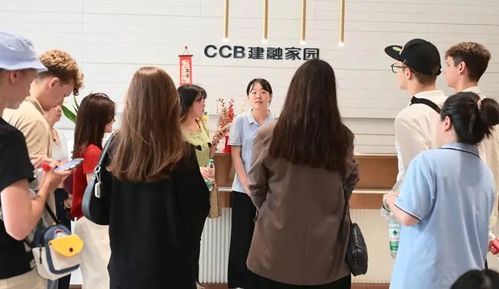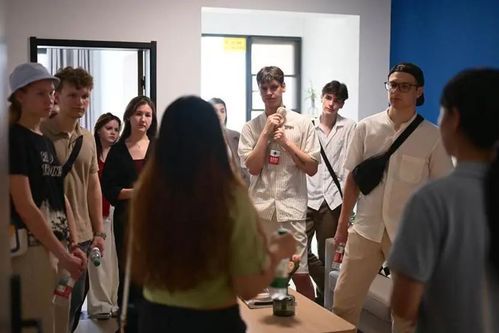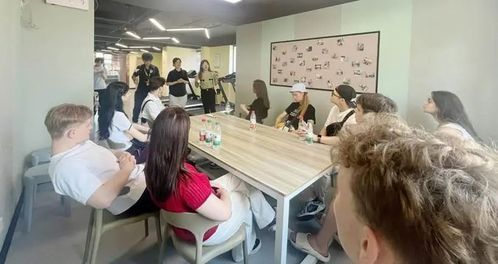"Silk Road Financial Future Leaders Pilot Program" Industry-Academia Research Activity: CCB Housing Service (Hubei) Co., Ltd.
On the afternoon of July 10, faculty and students from the "Silk Road Financial Future Leaders Pilot Program" of Zhongnan University of Economics and Law visited CCB·Jianrong Home Baishazhou Store, operated by CCB Housing Service (Hubei) Co., Ltd., for an industry-academia research activity. Participants included Zhou Zhe, Operations Manager of CCB Housing Hubei; Li Wenying, Store Manager of CCB Jianrong Home Baishazhou Store; Cao Yi, Assistant Store Manager; Cao Chenlu, Graduate Program Secretary of the School of Finance at Zhongnan University of Economics and Law; and 12 international students from the summer program.

As China’s first national state-owned housing rental service enterprise, Jianrong Home has pioneered a new model in which financial institutions actively participate in housing security initiatives. Ms. Cao Yi, Assistant Store Manager, elaborated on the operational philosophy of "Long-term renting means long-term living, long-term living means settling down," and introduced the housing rental service system, supported by standardized property management, intelligent service systems, and a professional operations team.

Accompanied by Ms. Li Wenying, Store Manager, the faculty and students conducted an on-site inspection of the fully furnished apartments. CCB Jianrong Home·Baishazhou Store, the flagship location in Wuhan, offers two standardized layouts—one-bedroom-one-living-room and studio units—fully equipped with appliances and furniture for move-in-ready convenience.

During the discussion session, Ms. Zhou Zhe, Operations Manager of CCB Housing Hubei, shared insights into how China Construction Bank (CCB) has innovated in the housing rental sector, not only revitalizing existing housing resources but also exploring a new path for financial support in social welfare. By developing an innovative "housing rental + financial services" model, CCB provides full-cycle financial support—from renting to homeownership—for young people, while actively integrating with employment and entrepreneurship policies, ultimately creating a closed-loop ecosystem that covers "housing-employment-homeownership."

Through this field visit, the international students in the summer program gained a more tangible understanding of how China’s financial sector serves the real economy and deepened their appreciation for the significance of financial innovation in supporting economic development.